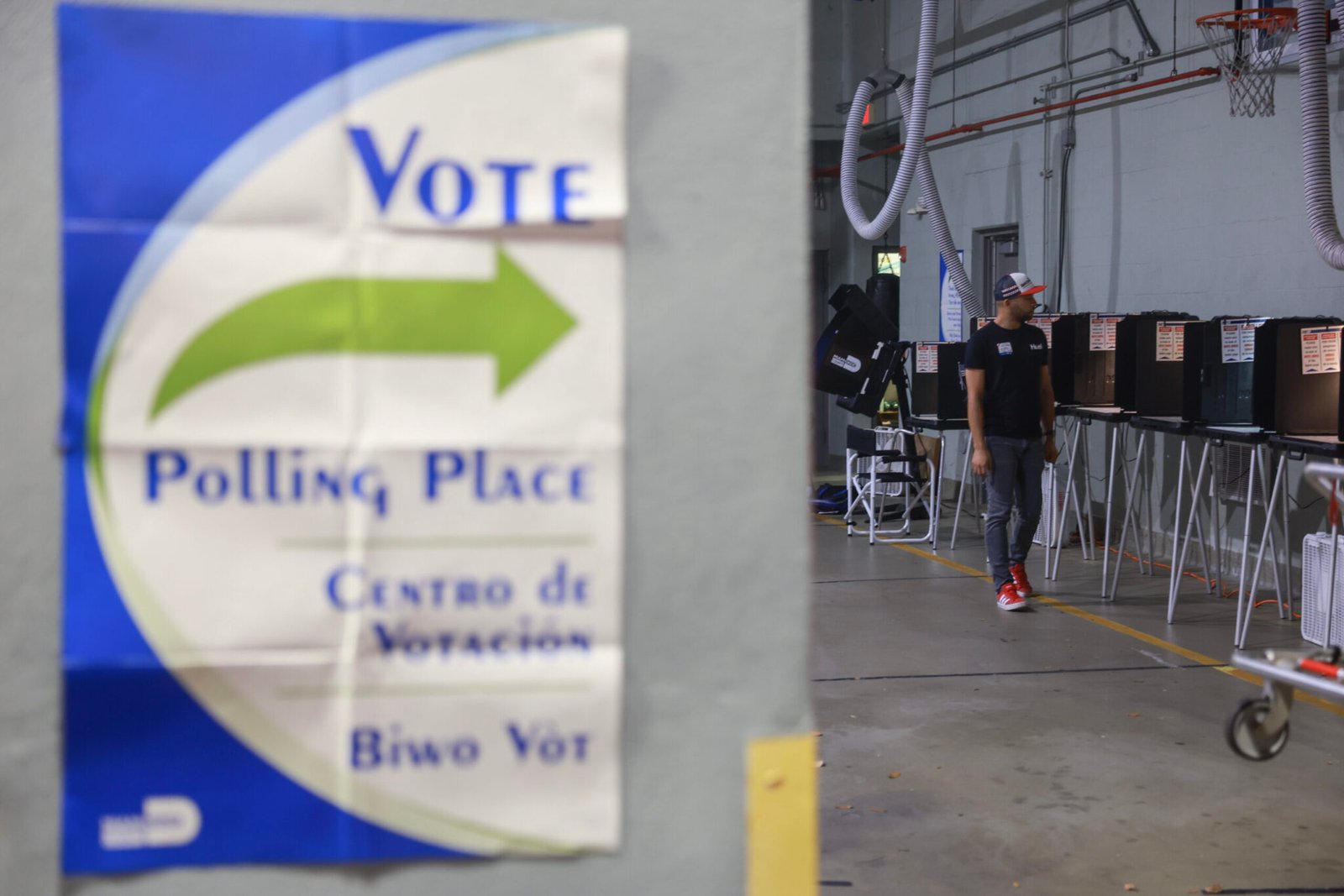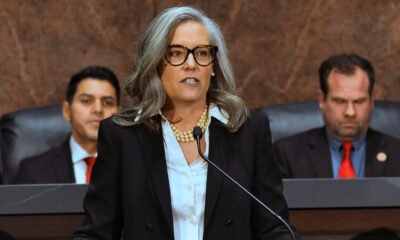Business
Latino Voters Prioritize Financial Concerns in 2024 Election, Survey Reveals

WASHINGTON — A new survey by UnidosUS reveals pressing concerns among Latino voters regarding the high cost of living, minimum wage, and escalating housing costs as the November elections approach. The organization is the nation’s largest Hispanic civil rights and advocacy center.
Janet Murguía, president and CEO of UnidosUS, emphasized the importance of addressing economic issues that resonate with the community. “Laying out a coherent economic policy agenda that will resonate with Latinos … would go a long way, I think, for our community,” she stated during a press call.
The survey was conducted between August 5 and 23, encompassing 3,000 eligible Hispanic voters. Interviews occurred in both English and Spanish, with an oversampling from key states including Georgia, North Carolina, Arizona, and others. BSP Research facilitated the poll, which has a margin of error of plus or minus 1.8 percentage points.
Significantly, Latinos constitute the second-largest voting-age population in the United States, with one in five expected to cast ballots for the first time this presidential election. “Top of mind are pocketbook issues,” Murguía noted, highlighting concerns about the rising cost of living shared by many Americans.
The issue of abortion rights also emerged as critical, with 71% of respondents opposing abortion bans. “They do not support making it illegal,” Murguía explained.
In terms of economic security, wages remain a major priority for Latino voters. Gary Segura, who conducted the UnidosUS poll, pointed out that many Latino workers earn the federal minimum wage of $7.25, unchanged since 2009. If adjusted for inflation, that wage would approximate $24. “The lived economy for Latinos is different than the lived economy for the nation as a whole,” Segura remarked.
Respondents expressed that affording essentials such as food and housing remains a struggle. A common sentiment was, “jobs don’t pay enough, or I have to take a second job to make ends meet.”
Regarding immigration, a hot topic in the current political climate, Murguía revealed that it ranked lower on the priority list for Latino voters, sharing space with concerns about gun violence. “We want to be crystal clear that Latino voters overall are not buying into campaign tactics that demonize immigrants,” she said.
Latino voters are supportive of pathways to citizenship for Dreamers and long-term undocumented residents. Conversely, opinions on mass deportations, a promise made by former President Trump, generated “virtually no support” among survey respondents, according to Segura.
Segura also noted that while Trump’s campaign includes immigration as a key issue, there appears to be a lack of awareness in Latino communities regarding his plans. “Many of the people we speak to believe that he will do it if he can, but they just don’t actually believe that he can pull that off,” he said.
Furthermore, the poll indicated that 55% of Latino respondents had not been contacted by either political party this election year. “We often hear a really dismissive and diminishing language about Latino participation in elections,” Segura said.
Highlighting outreach efforts, the Harris campaign initiated a bilingual WhatsApp campaign to engage Latino voters. During a Hispanic Caucus meeting, Michelle Villegas, the campaign’s national Latino engagement director, stated that the Latino vote is crucial in battleground states like Arizona, Nevada, and Pennsylvania.
The survey also uncovered the influence of running mates on Latino voter support. While Harris received a boost from her running mate, Minnesota Gov. Tim Walz, Trump’s running mate, Ohio Sen. J.D. Vance, negatively impacted his appeal among Latino voters.
Despite a clear Democratic advantage among Latino voters, barriers remain. Clarissa Martinez De Castro, vice president of the Latino Vote Initiative at UnidosUS, warned that more intense communication around economic issues and immigration is essential for Democrats to regain previous levels of support. Recent Equis Research polling data supports this need, showing Harris still trailing behind Biden’s 2020 performance among Latinos in key states.
![Members of the Arizona State Transportation Board sit on the dais in Surprise City Hall on Feb. 21, 2025. [Nancy Smith]](https://arizonanews.org/wp-content/uploads/2025/02/Surprise-Meeting-Reveals-One-Key-Barrier-Keeping-347-Off-ADOTs-400x240.jpg)
![Members of the Arizona State Transportation Board sit on the dais in Surprise City Hall on Feb. 21, 2025. [Nancy Smith]](https://arizonanews.org/wp-content/uploads/2025/02/Surprise-Meeting-Reveals-One-Key-Barrier-Keeping-347-Off-ADOTs-80x80.jpg)
















